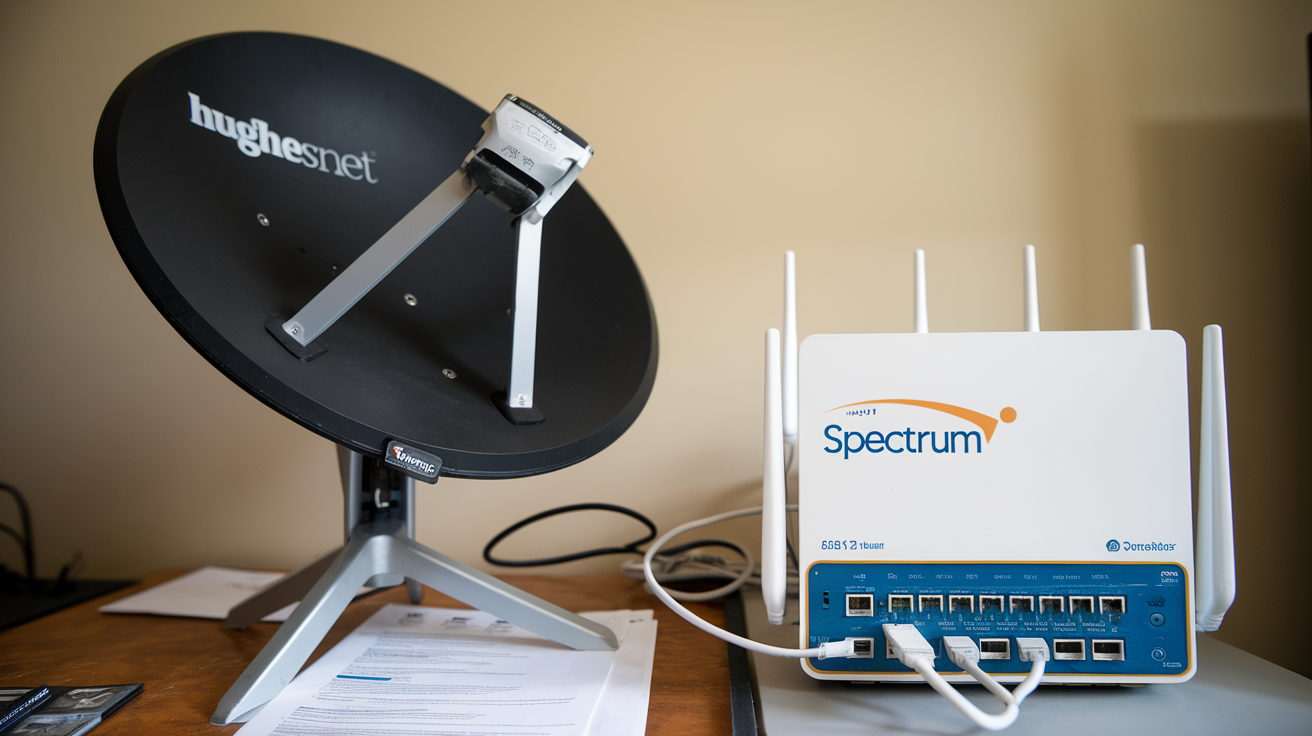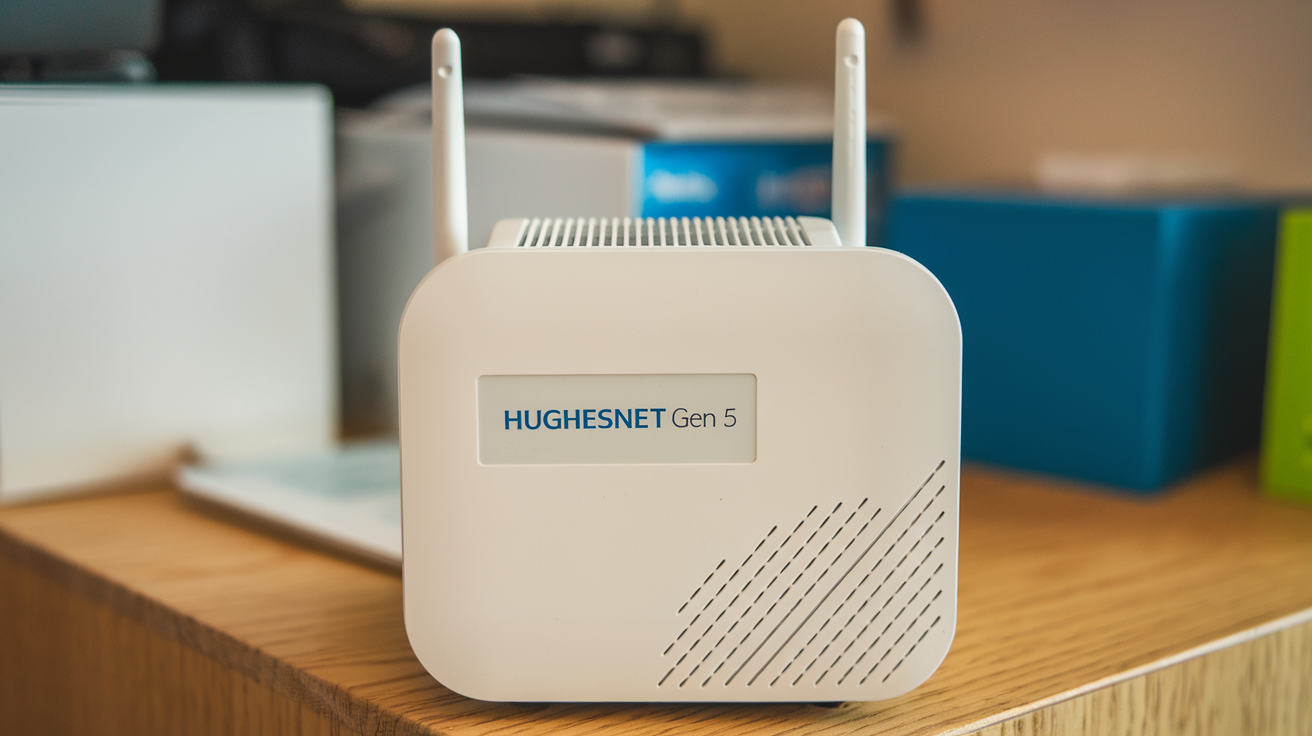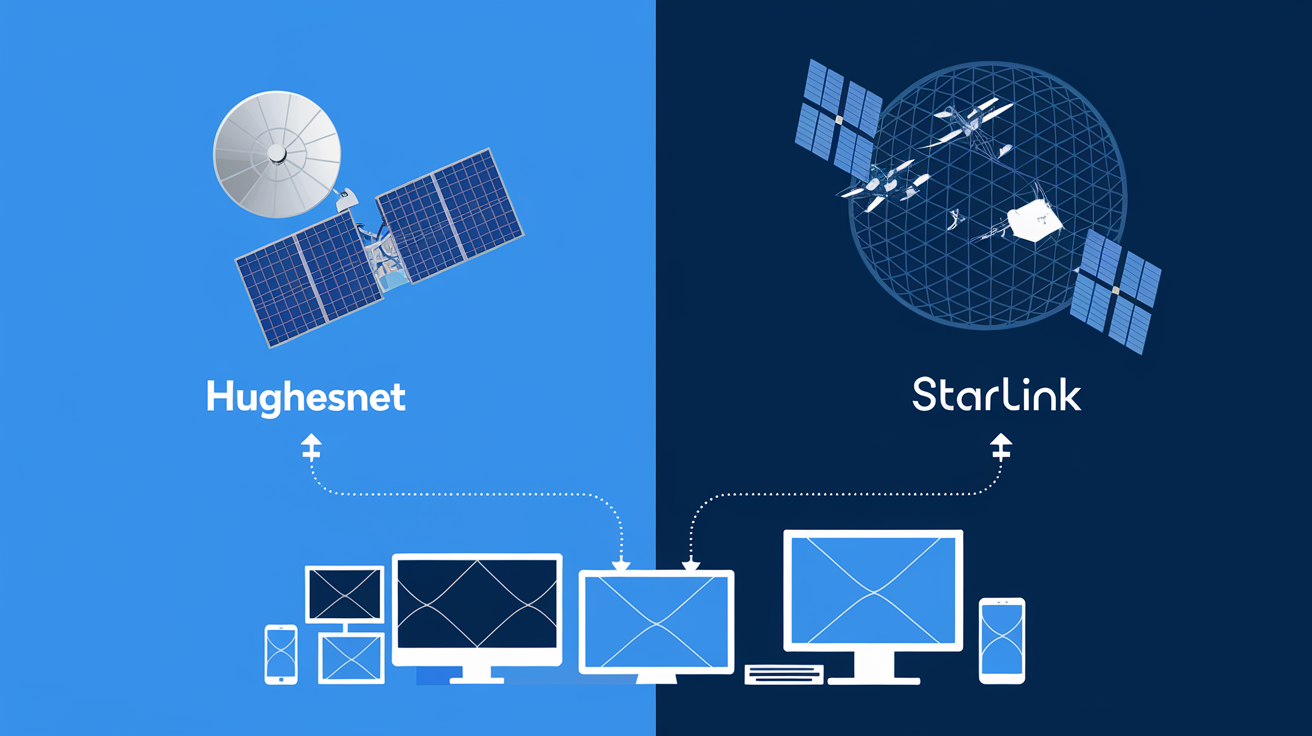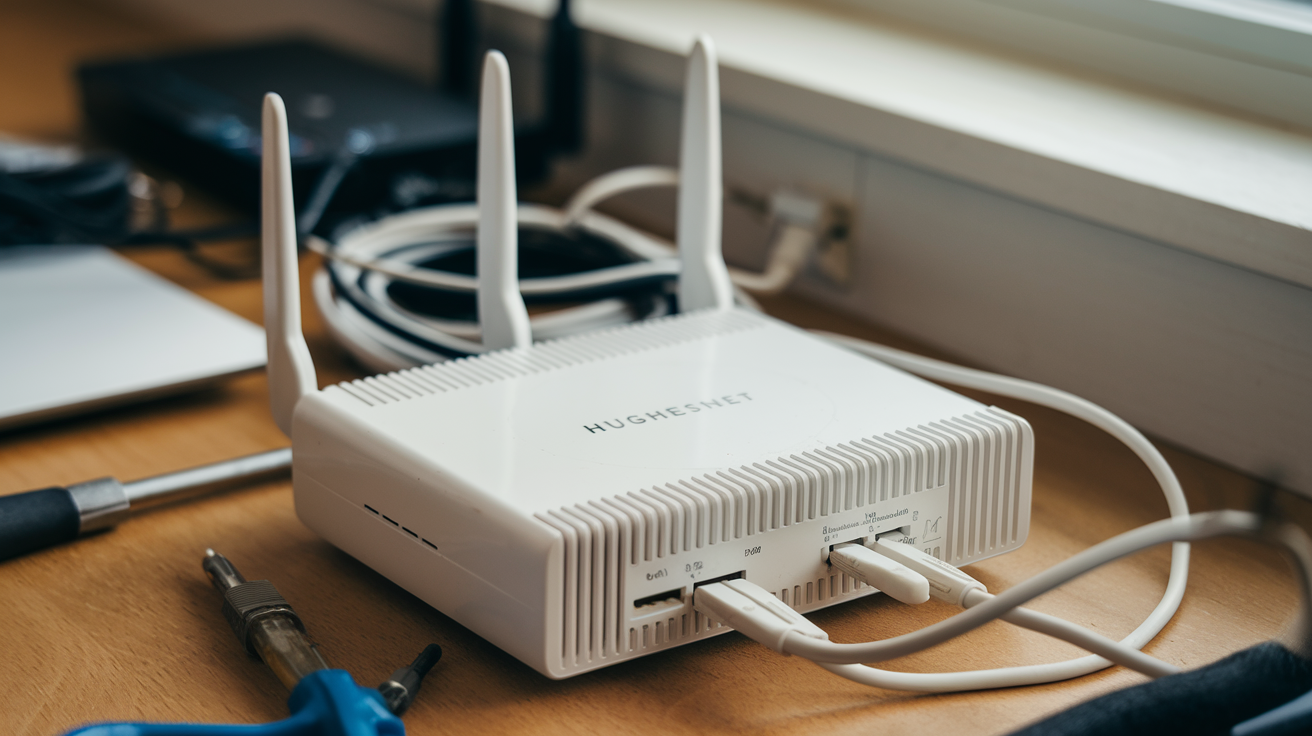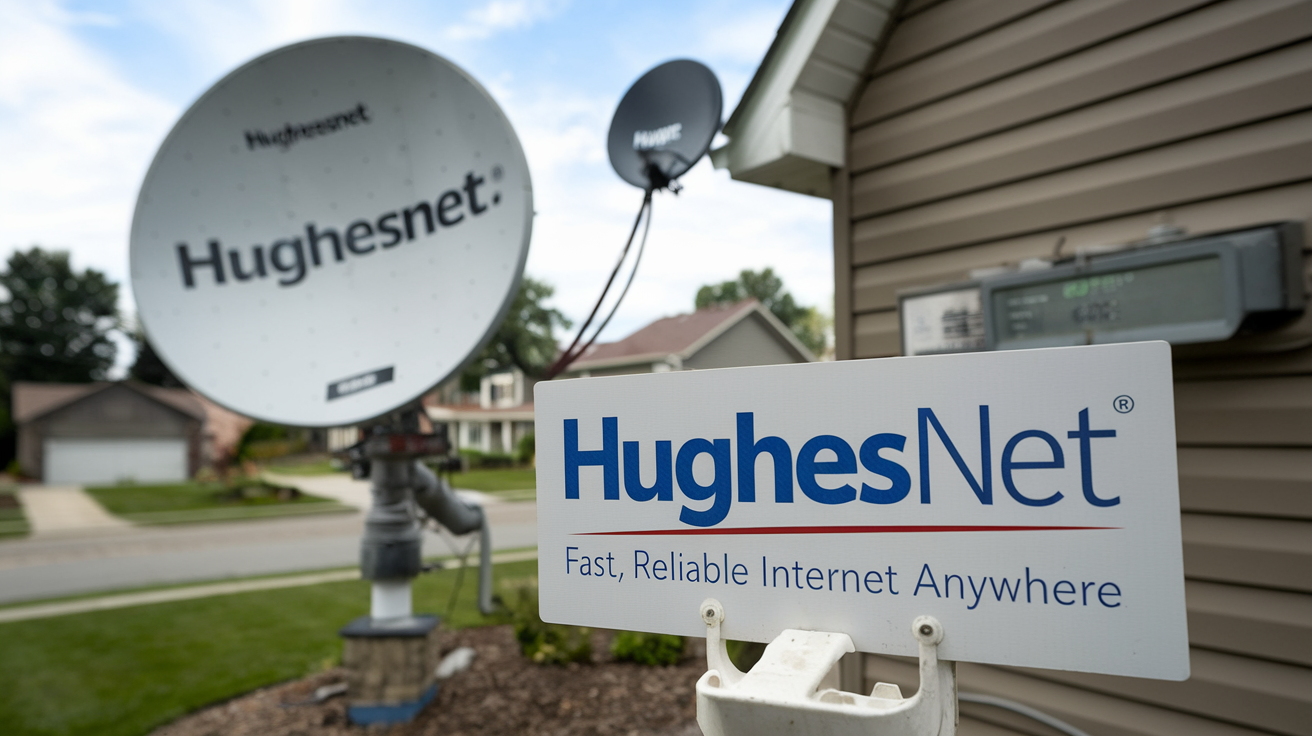-
Posted on: 08 Aug 2024

-
Currently, streaming sites such as Netflix are very fashionable, and internet service providers boast about their ability to support high bandwidth applications such as streaming videos. Some of the main customers that use satellite internet are the rural inhabitants who turn to companies such as Hughesnet. But is Hughesnet suitable for always streaming Netflix? Let's take a look.
What is Hughesnet?
Hughesnet is among the leading companies that have been offering satellite internet services in the United States of America. Satellite Internet is based on sending data between a satellite and an individual’s home’s small satellite dish. This enables Hughesnet to supply internet connections to those areas where cable or fiber optic connections are unattainable.
The biggest strength appears to be the availability – as long as one can see a part of the southern sky where the satellite is positioned, they can get Hughesnet. There are, however, some disadvantages, especially regarding the speed and some limitations concerning data usage.
Hughesnet Speed Issues
Hughes Net being one of the internet service providers has marketed their plans and proposed internet speeds are as perfect as they may sound. They offer their basic package, which supports download speeds of up to 25 Mbps, and what they consider their premium package with download speeds of up to 50 Mbps. But the keyword is ‘up to’ – customers often expressed dissatisfaction stating that actual speeds are much lower in real life.
This is because the throughput, which is the rate at which data is transferred, of satellite internet is substantially lower than that of cable or fiber optics terrestrial networks. It is a fact that all users on a given neighborhood node access bandwidth that is provided by a single satellite and therefore during the evening peak times, when people are using the Internet the most, the speeds are much slower.
Also, the satellite transmission delay caused by the distance it travels to reach the intended target hampers the loading and buffering of programs. Cable internet latency ranges from 20-40ms while Hughesnet latency is as high as 600ms and can go up to that level. This long round trip time for data packets is disadvantageous for real-time applications as it reduces performance.
Data Caps
This is true, especially about data caps where Hughesnet is known to be very restrictive. On all the plans, the data transfer per month is restricted to between 10 GB on the lowest plan and the highest plans which offer 150 GB. However, many American households consumed more than 400GB per month in 2020, according to a survey.
Also if you go a little over the limit, your speeds would be slashed to as low as 1-3Mbps for the rest of your billing cycle. However, for those who stream heavily, it is very much possible to hit these caps within a short time and experience a slow internet connection mid-month with Netflix. Some users have even reported speeds as low as 1 Mbps or even lower which just allows you to barely open and load web pages.
Requirements for Streaming Netflix
For streaming Netflix, one requires a fairly fast and steady connection to the Internet, although not necessarily very fast. The minimum Netflix speed requirement depends partially on your video resolution - lower resolutions need less bandwidth: The minimum Netflix speed requirement depends partially on your video resolution - lower resolutions need less bandwidth:
- SD quality video (480p) needs downloading at the rate of 3 Mbps for getting a fluent stream.
- To support high-definition streaming (720p), Netflix has suggested that customers need a minimum download speed of 5+ Mbps.
- For 4K videos, they suggest having a steady download speed of at least 25 Mbps, which is considered the best.
The speeds they suggest also factor in not only the movie but such things as the interface usage and the buffering overhead. However, you also require your connection to hold these speeds during viewing sessions, so raw speed numbers are insufficient.
Hughesnet is Just Not Good Enough
Although the relative top speeds that Hughesnet boasts on their website might be sufficient for watching Netflix in high definition or even 4K, typical speeds of actual customers indicate that this is not the case with satellite internet. A large water tank to be a constant evening slowdown, data limits in April.
Besides, there is always high latency in video streaming technologies which causes video buffering and inconsistent playback. The slow pinging essentially makes it unresponsive to real-time interactive and streaming services such as Netflix, which heavily rely on quick interchange of data.
Because Hughesnet fiber and wireless satellite Internet services have some of the highest latency rates during peak usage times, and introduce data limits and inconsistent speeds, the majority of Hughesnet customers likely do not have a satisfactory Netflix streaming experience. You watch 480p video occasionally and can stream it continuously without buffering, getting worse video quality, or hitting your data limit within minutes while watching HD or 4K content non-stop. In my opinion, Hughesnet is not recommended for people who watch Netflix consistently as it is not ideal to be used as a dedicated streaming service.
In conclusion, as we have seen, Hughesnet satellite internet service only just ticks the boxes in terms of the minimum speed requirements for streaming Netflix in standard definition let alone anything higher, and this is not even close to what most subscribers will experience in real life. Some of these problems include congested evening speeds, high latency which causes buffering, and restrictive data caps that prevent users from enjoying an excellent Netflix streaming service. If Hughesnet becomes the only wired broadband option for most households the levels of viewer frustration will be high for any other wired broadband options available.
Conclusion
HughesNet is suitable for casual Netflix streaming, particularly in SD or using Netflix’s data-saving settings. It’s not ideal for binge-watching in HD or sharing with multiple users due to data limits and slower speeds after throttling. If you live in a rural area with no other broadband options, it’s a reasonable choice—but if you stream heavily, you may want to explore alternatives like Starlink or 4G/5G home internet, if available.
FAQ:
1. Can I watch Netflix on HughesNet in HD?
Technically yes, but it will consume your data allowance very quickly. HughesNet recommends streaming in SD to preserve data.
2. How much data does Netflix use on HughesNet?
-
SD: ~1 GB/hour
-
HD: ~3 GB/hour
-
Ultra HD (4K): ~7 GB/hour (not recommended on HughesNet)
3. Will I experience buffering on Netflix with HughesNet?
Possibly. Due to high latency and network congestion, buffering may occur—especially during peak hours or after exceeding your data cap.
4. How can I reduce data usage on Netflix with HughesNet?
-
Lower video quality in Netflix settings to "Low" or "Medium"
-
Use Netflix’s data saver mode
-
Download shows during Bonus Zone hours (2 a.m. – 8 a.m.) if using the Netflix app
5. Is there a better option than HughesNet for streaming?
If available, consider Starlink, 4G/5G home internet, or fixed wireless broadband, as they typically offer lower latency and higher data limits.
